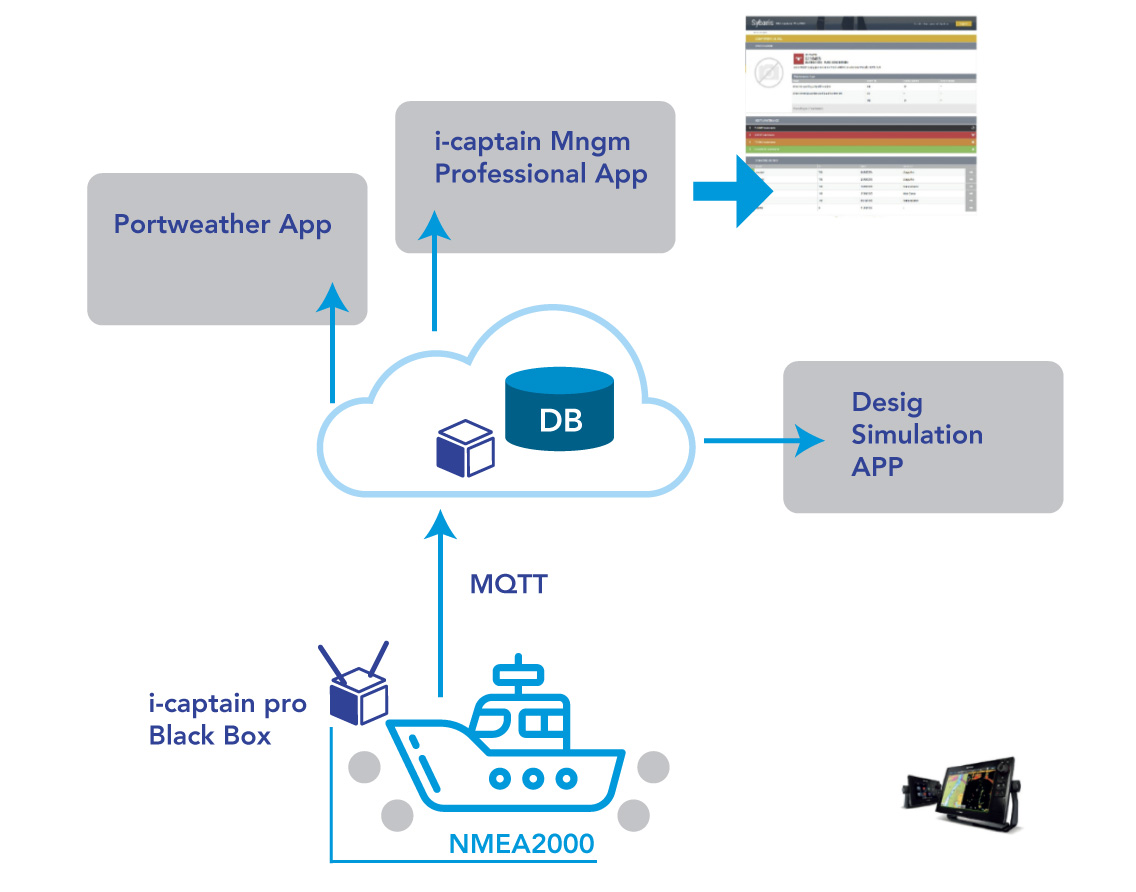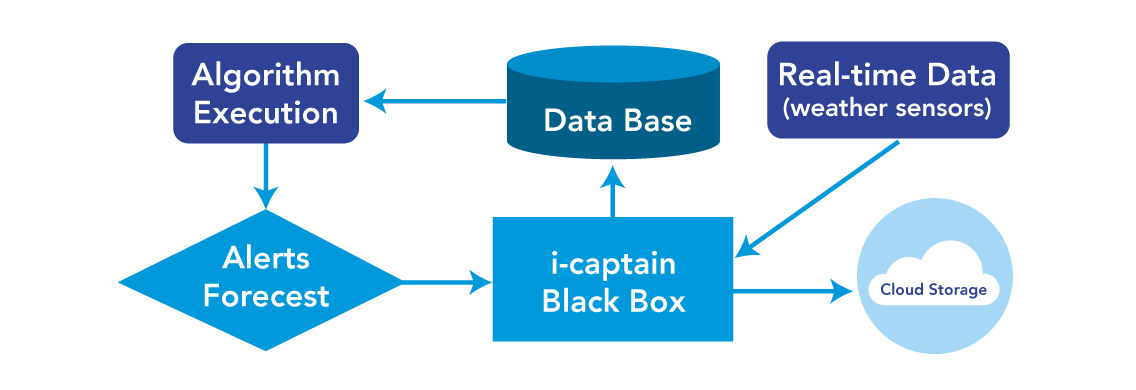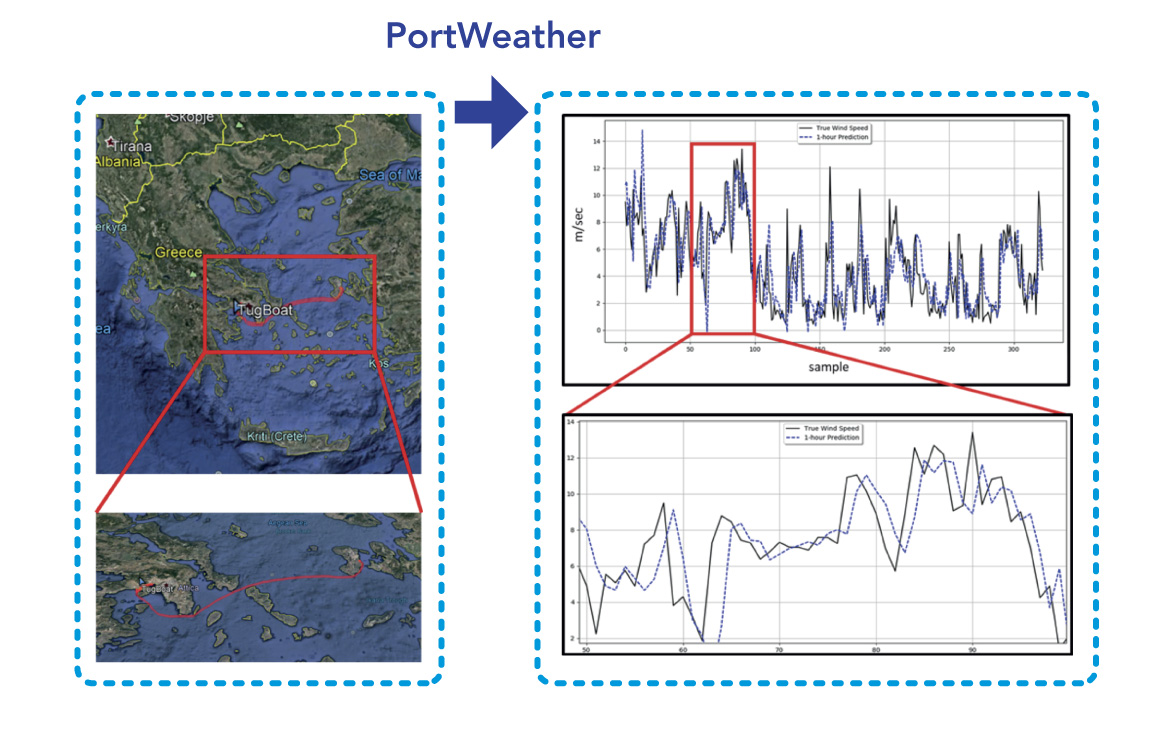The port weather application provides local short-term weather forecast, which is very useful for safe sea transportation, especially during rescue operations contributing to the rescue of people at risk in the sea.
The application operates using continuous measurements from a meteorological station on a pilot vessel. The meteorological station records automatically all the measurements of its sensors.
A Machine Learning algorithm embedded on hardware provides wind speed forecast and warnings.
APPLICATION
The Lincoln Platform uses the i-captain black box in order to collect the data from the weather station.

- The data is collected online from an on board weather station.
- The data is used as input to an advanced Machine Learning Algorithm, which provides Wind Speed prediction for 1-2 hours ahead.

BENEFITS
The weather application forecasts the speed of the wind, minutes/hours ahead, based on previously recorded values and other measured parameters.
It utilizes a small memory footprint Machine Learning (ML) algorithm, which runs in a low power, low cpu frequency, low memory microcontroller.
It produces warnings reports and provides the forecasting values to the i-captain black box user.
The method has been successfully tested in real data from a tug boat trip from Chios island (Greece) to Athens (Greece).

Portweather Introduction
LINCOLN: Portweather tutorial 1 by CTI
Portweather tutorial 2: The LINCOLN IoT platform
Portweather tutorial 3: The Portweather application

